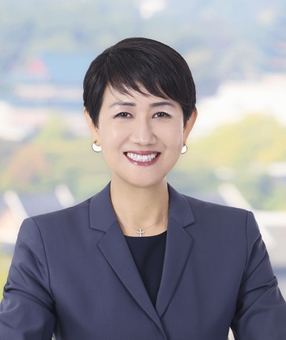The Special Act on Promotion of Distributed Energy (the “Distributed Energy Act” or the “Act”) was enacted on June 13, 2023, with the aim of complementing the limitations of the existing centralized power system and laying the foundation for the activation of distributed energy and the balanced supply and demand of electricity. The Act will come into effect on June 14, 2024, and the detailed matters necessary for the implementation of measures to promote distributed energy, such as the power grid impact assessment, are delegated to subordinate laws.
The Ministry of Trade, Industry and Energy (the “MOTIE”) announced the enactment of the Enforcement Decree and the Enforcement Rule of the Act (respectively, the “Proposed Enforcement Decree” and the “Proposed Enforcement Rule”) on December 19, 2023, which are expected to take effect on June 14, 2024 after gathering opinions (period: January 29, 2024). The key contents and implications are as follows:
Scope of Distributed Energy
The Proposed Enforcement Decree specifies the scope of distributed energy delegated by the Act as “energy below a certain scale prescribed by the Presidential Decree” to include (i) electric facilities for private use (limited to energy used for private use), (ii) power generation facilities with a power generation capacity of 40,000kW or less, (iii) power generation facilities installed in the vicinity of a demand site and capable of minimizing the construction of transmission lines, which meet the standards prescribed by the Enforcement Rule and are publicly notified by the MOTIE, or (iv) thermal energy[1] that meets the statutory standards (Article 2 of the Proposed Enforcement Decree).
In addition, a nuclear power generation business can be categorized as a distributed energy business only when a nuclear power reactor with a power generation capacity of 300,000kW or less per module (i.e., small module reactor) is used (Article 3 of the Proposed Enforcement Decree), while a renewable energy business is deemed as a distributed energy business when hydrogen energy, fuel cell or renewable energy is used, and a fuel cell power generation business is deemed as a distributed energy business when hydrogen, ammonia or other hydrogen compounds are used (Articles 4 and 5 of the Proposed Enforcement Decree).
In order to engage in the business of supplying such distributed energy, it is necessary to register as a distributed energy business with (i) personnel requirements (two qualified engineers, etc.), (ii) facility requirements (underwent safety certification, etc.), and (iii) capital requirements (KRW 50 million or more) (Article 8 and Annex 1 of the Proposed Enforcement Decree).
Obligation to Install Distributed Energy
The Distributed Energy Act sets forth the distributed energy installation obligation that requires mandatory installers to use at least a certain percentage of their energy use as distributed energy (Article 13). In this regard, the Proposed Enforcement Decree specifies the scope of mandatory installers as (i) the owners of newly-built or substantially repaired buildings (excluding buildings announced by the MOTIE) that are defined under Article 2 of the Building Act and are expected to use at least 200,000 MWh of energy annually, and (ii) the operators or managers of projects with an area of at least 1 million m2 for development projects, etc. among those falling under Article 13 (1) 2 of the Act (e.g., operators of housing site development projects, managers of industrial complexes, etc.). In addition, the capacity of distributed energy facilities that a mandatory installer is required to install is calculated to be “annual estimated energy use by mandatory installers x regional/annual ratio” or higher (Article 12, Paragraph (1) of the Proposed Enforcement Decree), and the regional ratio will be notified by the Minister of MOTIE in consideration of the regional power self-sufficiency ratio (Paragraph (2) of the same Article). The annual ratio is expected to gradually increase from 2% in the enforcement year to 20% after 2040 (Paragraph (3) of the same Article, Annex 4).
Power Grid Impact Assessment
According to the Act, any business operator that intends to use at least a certain scale of electricity in a designated area for power grid impact assessment by the MOTIE must carry out the power grid impact assessment (Article 23 of the Act). The Proposed Enforcement Decree stipulates that business operators subject to the power grid impact assessment are (i) those who intend to execute a new electricity use contract with an electricity sales business operator with a contracted power of 10MW or more, (ii) those who intend to increase the contracted power by 10MW or more after executing an electricity use contract with an electricity sales business operator with a contracted power of 10MW or less, (iii) those who intend to increase the contracted power by 10MW or more on a cumulative basis after executing the initial electricity use contract with an electricity sales business operator, (iv) those who intend to increase the contracted power by 10MW or more on a cumulative basis after conducting the power grid impact assessment, and (v) those who are required to establish an energy use plan under the Energy Use Rationalization Act (Article 29 of the Proposed Enforcement Decree). The criteria for the power grid impact assessment will include whether the quality of electricity and reliability of the electric power grid can be maintained, the level of difficulty in reinforcing power facilities necessary for the supply of electricity, and whether measures to minimize system impacts have been prepared (Article 31 of the Proposed Enforcement Decree).
Special Distributed Energy Zone
The Distributed Energy Act allows distributed energy business operators to directly supply electricity to electricity users in special distributed energy zones. Furthermore, the Proposed Enforcement Decree stipulates that (i) a person who has set up an electric facility for private use may trade electricity with a distributed energy supplier to the extent of less than 50% of the total annual output of electricity generated through such facility, (ii) a stored-electricity sales business operator shall be deemed to have set up a power generation facility if it installs an electric storage device in a special distributed energy zone, and (iii) a distributed energy business operator shall be allowed to set up a power distribution facility in a special zone to supply electricity to electricity users.
Implications
These subordinate laws set forth specific standards for the scope of distributed energy, the scope of persons obligated to install distributed energy, the amount of mandatory installation, and the scope of business operators subject to the power grid impact assessment. The Distributed Energy Act was introduced to fundamentally resolve conflicts and social costs arising from new construction of large-scale transmission networks and to establish a system that allows for consumption of energy produced in the region. If the enforcement of the subordinate laws and regulations of the Act provides the institutional foundation to promote the use and transaction of distributed energy, then it is expected that the business model and profit structure utilizing distributed energy will be diversified.
In particular, the introduction of the power grid impact assessment is expected to affect those businesses that use large-scale electricity such as data centers. In this regard, it is advisable to monitor not only the detailed assessment criteria to be introduced by the MOTIE’s notification, but also to the specific practical trends of the Korea Electric Power Corporation, which will be in charge of the power grid impact assessment. In addition, it is advisable to monitor the regulator’s interpretation on the issues such as the specific scope of distributed energy, the ratio of distributed energy to be installed by region, and the detailed evaluation criteria for the designated regions subject to the power grid impact assessment.
[1] Thermal energy of the capacity as prescribed in Article 2, Paragraph (1) of the Enforcement Decree of the Integrated Energy Supply Act produced by an integrated energy supplier (provided, however, that in case of heat produced by a person other than an integrated energy supplier, heat less than the above capacity shall be included).
Related Topics












